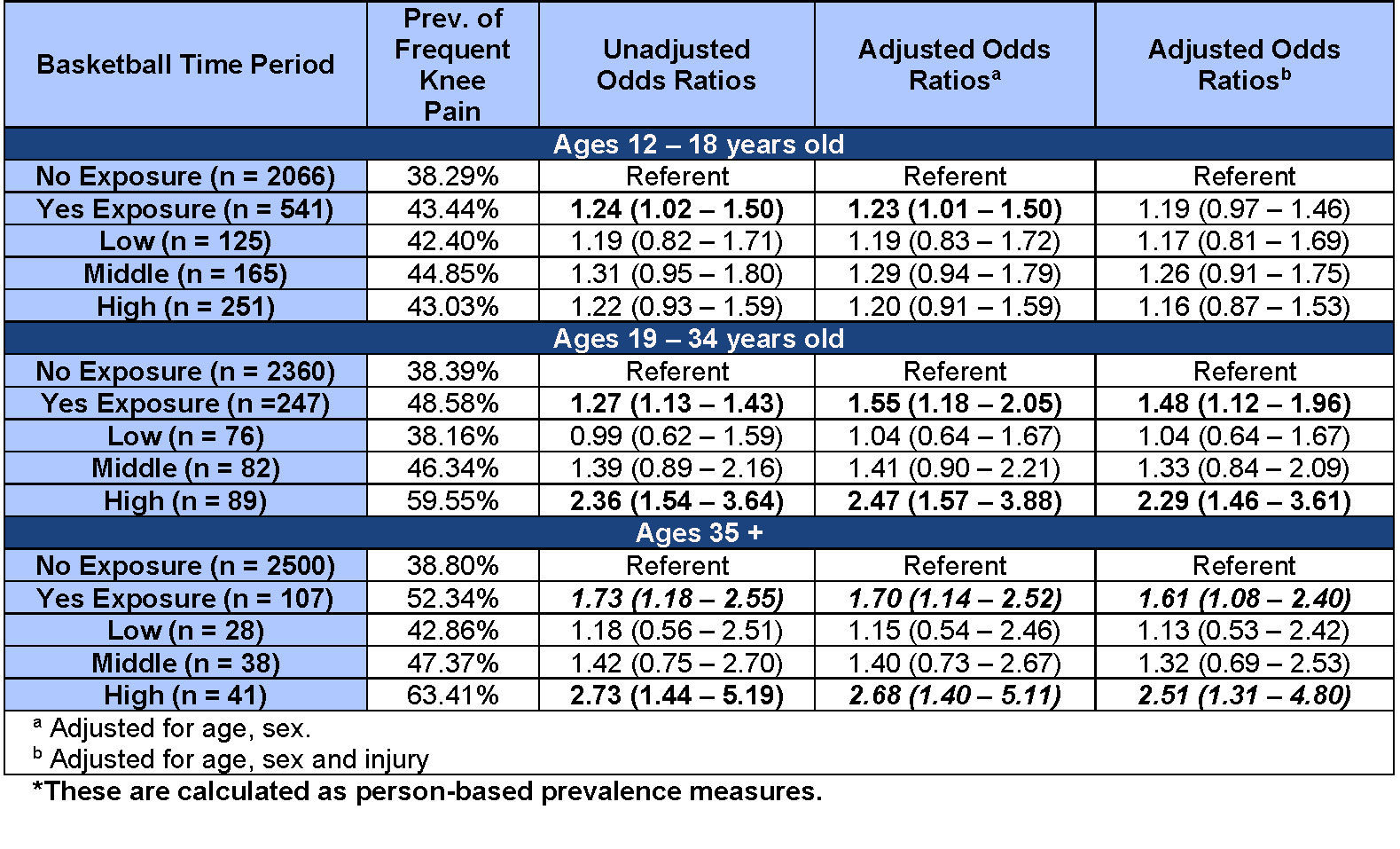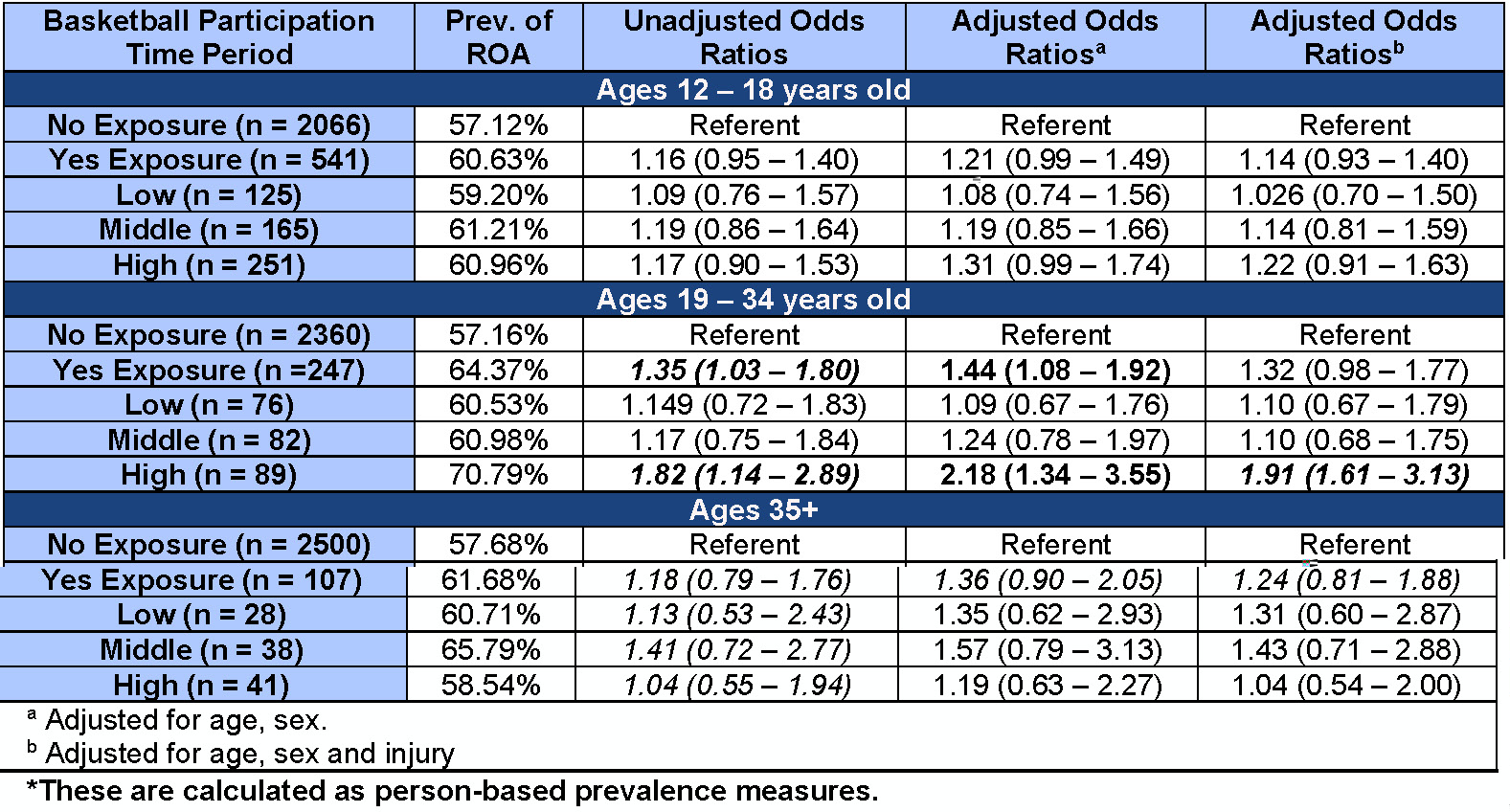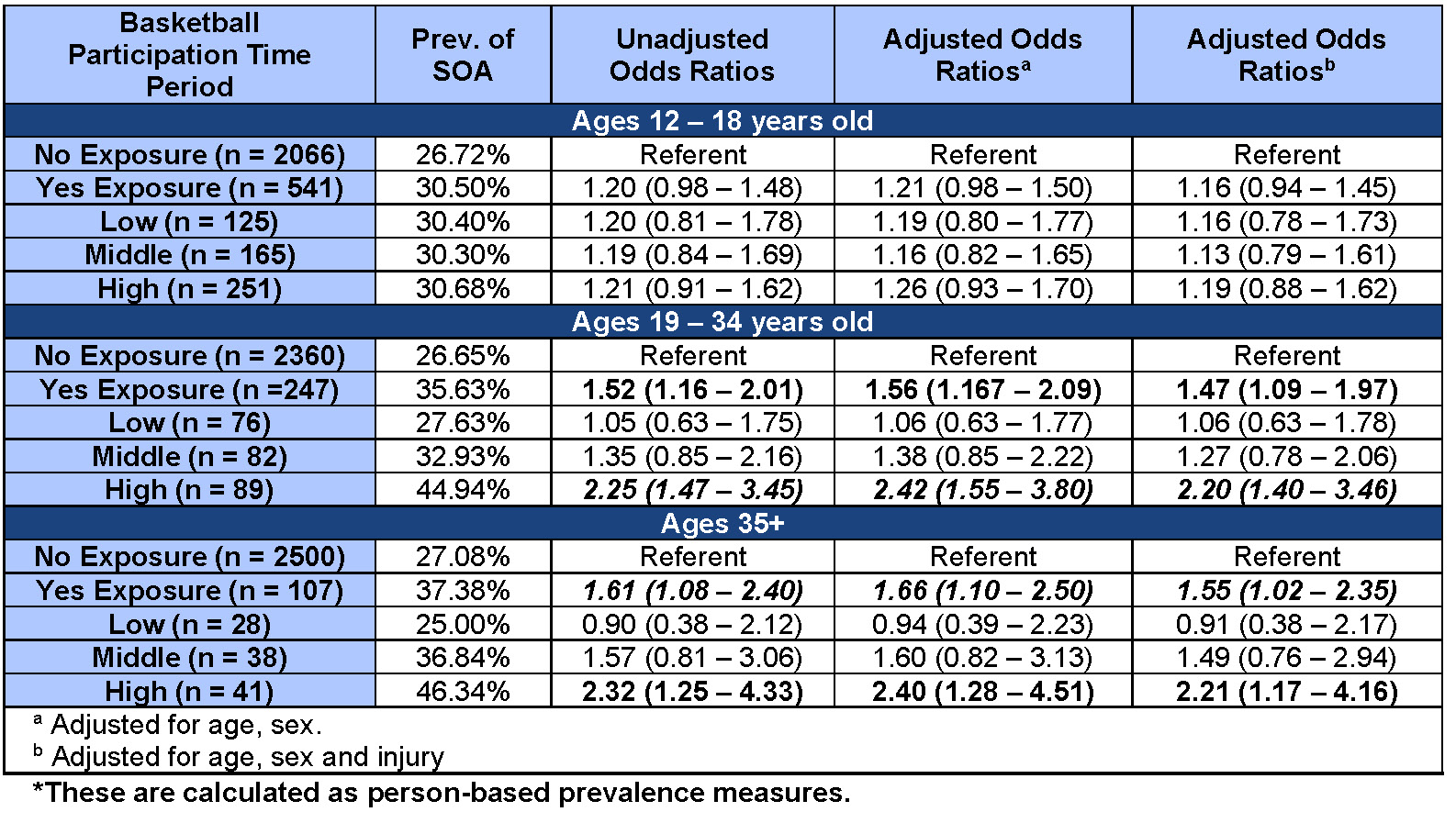Session Information
Session Type: Poster Session C
Session Time: 10:30AM-12:30PM
Background/Purpose: Basketball is a globally popular sport, but research on the relationship between basketball and knee osteoarthritis (OA) is lacking. This study aims to assess the association between different levels of basketball participation at a non-elite level and knee OA using data from the Osteoarthritis Initiative (OAI), a longitudinal cohort not recruited based on basketball participation.
Methods: This retrospective cross-sectional study utilized data from OAI participants, including demographic information, knee x-ray readings, symptom assessments, and completed surveys on lifetime physical activity. A modified version of the Historical Physical Activity Survey Instrument identified those who played basketball. Posterior-Anterior semi-flexed knee radiographs were scored for Kellgren-Lawrence (KL) grade (0-4). Radiographic OA (ROA) was defined as KL ≥ 2. Frequent knee pain within a person required at least one knee to have frequent knee pain. Symptomatic radiographic OA (SOA) required that at least one knee have both ROA and frequent knee pain. Anyone with a total knee replacement was classified as having frequent knee pain, ROA, and SOA.
Using logistic regression, we evaluated the association of any history of basketball participation during 3 age periods (12-18, 19-34 and 35+), with the prevalence of ROA, frequent knee pain, and SOA as the outcomes. All outcomes were person-based definitions. We looked at exposure in two ways: dichotomously (non-participants versus participants) and across 4 groups: non-participants and 3 levels of participation (low, medium, and high tertiles of basketball participation).
Results: 2,607 participants were included in the analysis, with 606 reporting exposure to basketball. The average age of participants was 64.3 years, with 44.2% being male. Participants exposed to basketball had a higher percentage of males (69.6%) compared to those not exposed (36.5%). BMI was similar across both groups, averaging 28.5 kg/m².
The fully adjusted odds ratios for frequent knee pain, ROA, and SOA among those with reported basketball participation compared to no basketball participation were 1.21 (1.00 – 1.48), 1.21 (0.99 – 1.47), and 1.28 (1.04 – 1.58), respectively, with highest levels of exposure related to the greatest prevalence of frequent knee pain and SOA in those reporting basketball exposure after the age of 18.
Conclusion: We have found a dose-response relationship between basketball participation and prevalence of frequent knee pain and SOA in those reporting basketball exposure, particularly among those who participated after the age of 18.
These findings suggest the need for caution regarding participation in basketball, particularly at older ages. High-quality prospective studies are needed to better understand this association.
To cite this abstract in AMA style:
Alderazi A, Lo G, Driban J, McAlindon T, Rockette-Wagner B, Eaton C, Hochberg M, Kwoh K, Nevitt M. Exploring the Association Between Basketball Participation and Knee Osteoarthritis: Data from the Osteoarthritis Initiative [abstract]. Arthritis Rheumatol. 2024; 76 (suppl 9). https://acrabstracts.org/abstract/exploring-the-association-between-basketball-participation-and-knee-osteoarthritis-data-from-the-osteoarthritis-initiative/. Accessed .« Back to ACR Convergence 2024
ACR Meeting Abstracts - https://acrabstracts.org/abstract/exploring-the-association-between-basketball-participation-and-knee-osteoarthritis-data-from-the-osteoarthritis-initiative/



